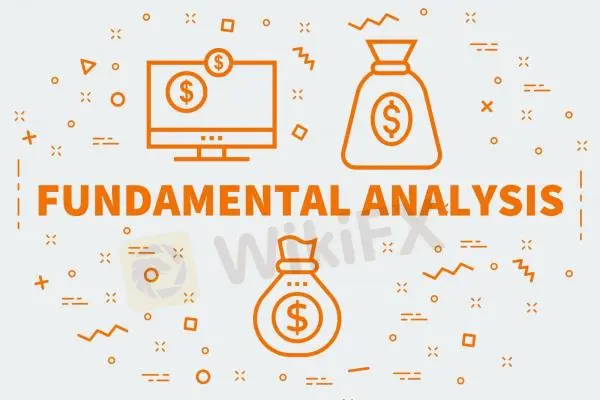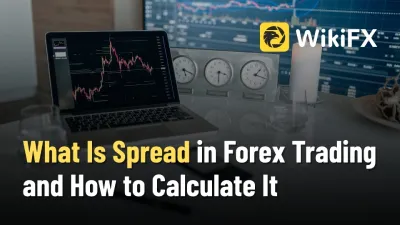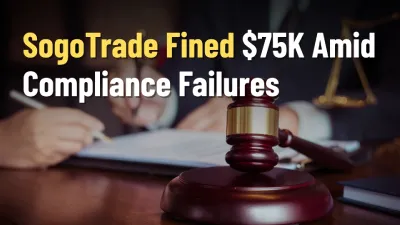What Is Spread in Forex Trading and How to Calculate It
Spread Meaning in Forex Guide: Forex spread defines the bid-ask price differential, representing the cost of entering a trade instantly.
简体中文
繁體中文
English
Pусский
日本語
ภาษาไทย
Tiếng Việt
Bahasa Indonesia
Español
हिन्दी
Filippiiniläinen
Français
Deutsch
Português
Türkçe
한국어
العربية
Abstract:Fundamental analysis is a way of looking at the forex market by analyzing economic, social, and political forces that may affect currency prices. Both Forex and CFD traders must understand the difference between fundamental analysis and technical analysis. Traders are always arguing over which school is best. This piece will look at the basics of Forex / CFD fundamental analysis and how to use this form of market analysis.

Fundamental analysis is a way of looking at the forex market by analyzing economic, social, and political forces that may affect currency prices. Both Forex and CFD traders must understand the difference between fundamental analysis and technical analysis. Traders are always arguing over which school is best. This piece will look at the basics of Forex / CFD fundamental analysis and how to use this form of market analysis.
Most brokers try to sell trading Forex and CFDs by tossing jargon like economic calendars, NFP, trading events, and fundamental analysis to prospective clients. They make it seem like trading is as straight forward as checking the calendar for a significant release. However, trading on events and following an economic calendar is anything but simple and should never be confused with fundamental analysis.
Fundamental analysis is the study of the events and factors that influence the price of a financial instrument, such as stocks, commodities, indices and currencies. Unlike technical analysis, fundamental analysis involves the analysis of financial and economic data to measure the intrinsic value of an underlying asset. This data can range from major global events to company data. Many events are interconnected, affecting the price of different classes of assets and different assets.
The news may trigger a change to the inherent or fundamental value of an asset, which leads to a certain reaction from traders and other market participants following the asset. As assets always have an intrinsic value and a market value. When the intrinsic and market values differ, there is an opening for correction when a significant news item is released
Their response forces the value of the asset to swing towards the intrinsic value of the asset. Comparing an assets intrinsic value with its market value to buy or sell is the basis of fundamental analysis. It is impossible to understand every piece of information released. Fortunately, traders can pick a few assets to trade and focus their attention on those assets, and on the fundamental events and factors that affect them. This is especially possible with the advent of the internet. However, it is also important to follow the more general worldwide and financial headlines so as to put information into a larger context.
Below are some of the factors to consider when applying fundamental analysis:
• Natural events that can affect the forces of supply and demand
• Political events that can have a significant impact on the price of different assets
• The financial market sentiment
• The release of economic data such as GDP, interest rates, retail sales, and unemployment
Since fundamental analysis is about looking at the intrinsic value of an investment, its application in forex entails looking at the economic conditions that affect the valuation of a nation's currency.
Conducting fundamental analysis is the same for each currency pair or underlying asset, but traders should be aware that factors causing a shift in the fundamentals of these assets can vary with each asset class. For example, the price of agricultural commodities will be affected by natural events such as weather patterns and disease. For stocks, traders should look at factors such as mergers and acquisitions, earning reports, company news, etc. Currencies are most affected by changes in interest rates, the pace of growth in world economies, and geopolitical events.
There are many economic indicators, and even more private reports, that can be used to evaluate forex fundamentals. It's important to take the time to not only look at the numbers but also understand what they mean and how they affect a nation's economy. When properly used, these indicators can be an invaluable resource for any currency trader. Hence it is a useful tool, which is designed to give traders a better view of the market.
Disclaimer:
The views in this article only represent the author's personal views, and do not constitute investment advice on this platform. This platform does not guarantee the accuracy, completeness and timeliness of the information in the article, and will not be liable for any loss caused by the use of or reliance on the information in the article.

Spread Meaning in Forex Guide: Forex spread defines the bid-ask price differential, representing the cost of entering a trade instantly.

Allied Top review: Covering regulation, trading platforms, leverage, spreads, deposits, and real trader feedback for informed decisions.

Global broker STARTRADER refreshes its brand identity, reinforcing trust, growth, and client focus through a modernized visual and strategic repositioning.

FINRA fines SogoTrade $75,000 for market access control failures as TopFX advances synthetic indices trading and 24/7 multi-asset solutions.
